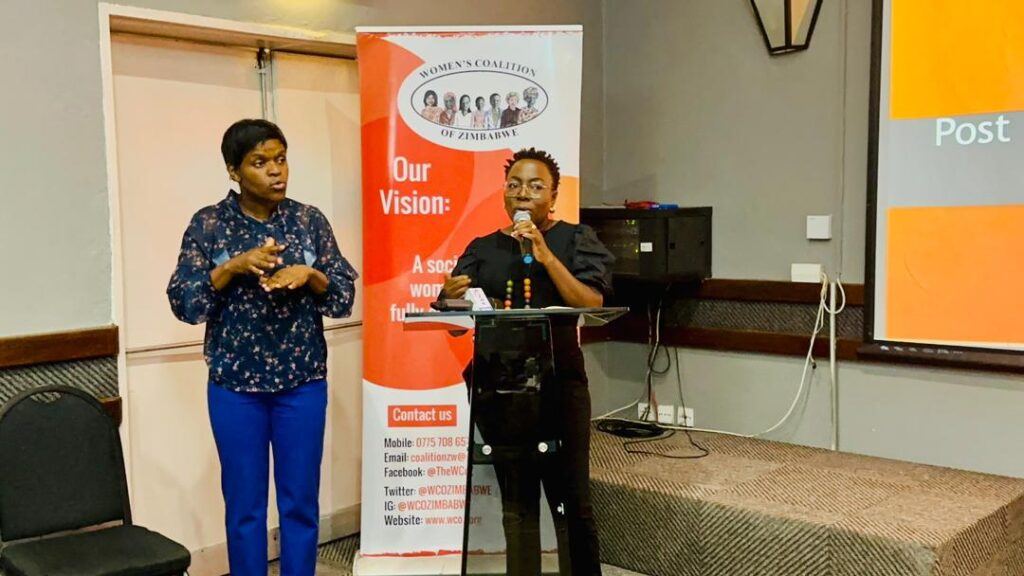
Last Thursday, TaLI Founder and Director, Nyaradzo Mashayamombe was present at the Women’s Coalition of Zimbabwe’s dialogue between women in politics and the media. The dialogue consisted of female politicians from different parties sharing their experiences with media violence and portrayals, WCOZ discussing the findings of their media monitoring during the 2023 election, and responses from the media on their views of women in politics. The purpose of this dialogue was to not only shine a light on the issues women face in politics and media but also find strategies to ensure safe spaces for female politicians online and offline. The dialogue fostered a mutual understanding between the two intersecting sectors of politics and media.
The media’s power of influence is an integral factor of politics because it affects public opinion; and because of the existing patriarchal notions in Zimbabwean society, the media has the power to affirm or rebut these notions through its portrayal of women, especially those in politics.
The diverse panel present at the dialogue expressed that despite their party affiliation (as media in Zimbabwe is heavily swayed by party politics) their gender is always under attack in the media. This is done through sexual objectification, publication of false stories, harassment, and “past digging” to discredit a female politician. The women pleaded with the media to support women out loud and use the same big fonts and headlines they use for click-bait in the positive and true stories of women. They also expressed how when a false story is published as a headline, the correction of that story does not get the same headline treatment, making it impossible for the damage done to be removed. In addition, the female leaders also called out the fact that reporters and journalists do not care about women’s stories until the woman has won or has reached a specific stage in their election. This has a negative effect on the women because the work they do goes unnoticed. Other women present also discussed the prevalence of misinformation spreading to tarnish their reputation and how this hinders them from speaking to the media and participating in politics.
On the other hand, the media also expressed that although they have good intentions of presenting female politicians in a positive light, they also have difficulty communicating with women. This is because the politicians are either uninterested in speaking to the media, or they are too busy to answer messages asking for a statement from them.
Along with directing TaLI, Ms. Mashayamombe is also the owner and CEO of the media house, Identities Media. She represented the media and CSO side during this intersectional discussion. Similar to the rest of her media colleagues, Mashayamombe acknowledged the lack of female voices in media, especially in international media and news. She also highlighted that even though women’s fear of speaking to the media is valid, there are women in media, like Mashayamombe, who want to highlight women but are shut down because of this fear. She encouraged all media houses to be cognisant of the issues women face compared to their male counterparts and use that as some direction in communicating with them.
The dialogue was concluded with solutions to create partnerships between women and media, to strengthen laws protecting women and promoting gender equality, and to create the safe space for women to share their stories without fear of misinterpretation.
